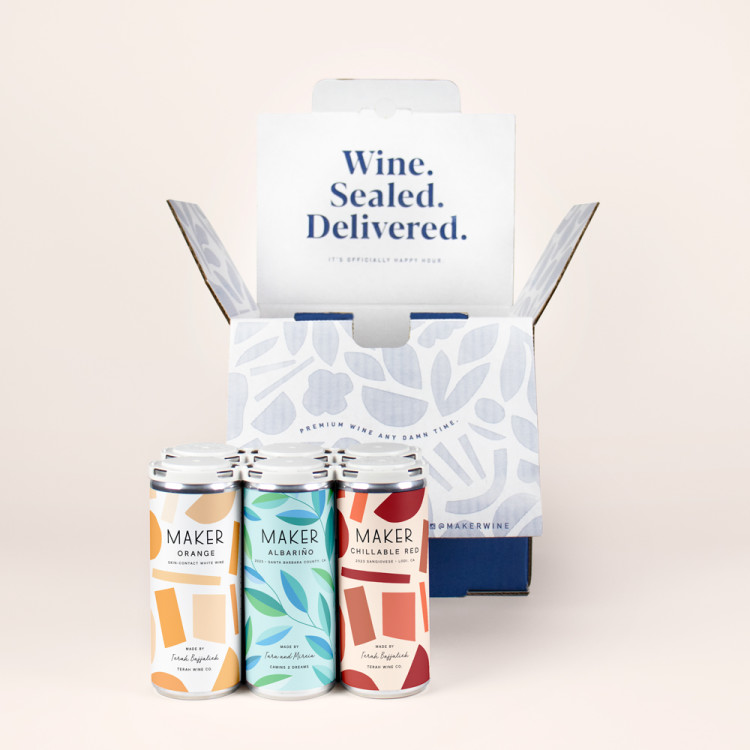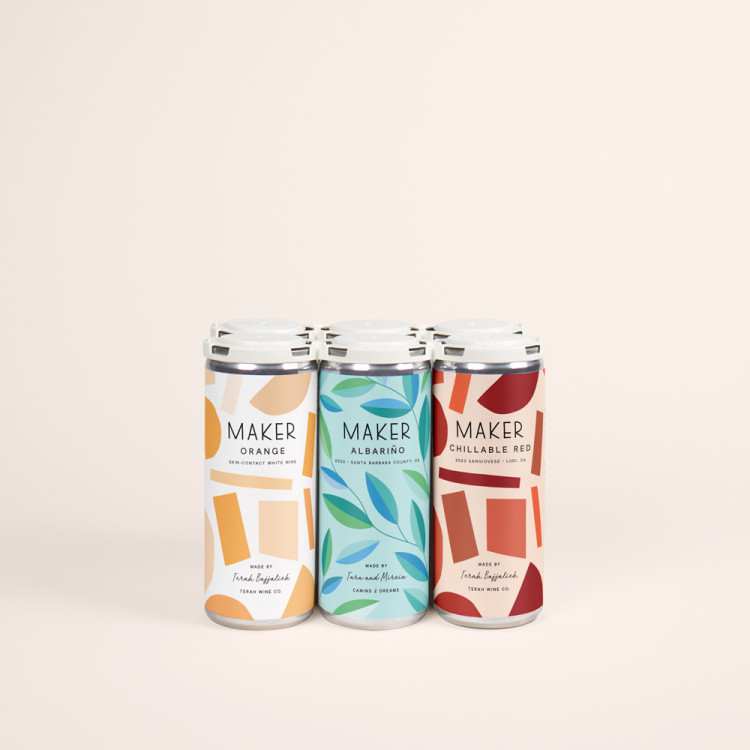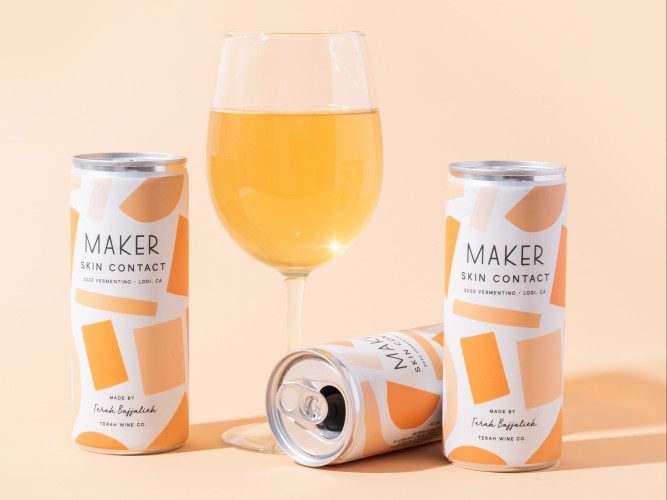Wine School
Contains Sulfites: Cool, So, What Are Sulfites in Wine?
Curious about sulfites in your wine? You're not alone. Let’s unpack the role of sulfites in preserving the taste and quality of your beloved vintages.

By Maker Wine
July 20, 2023
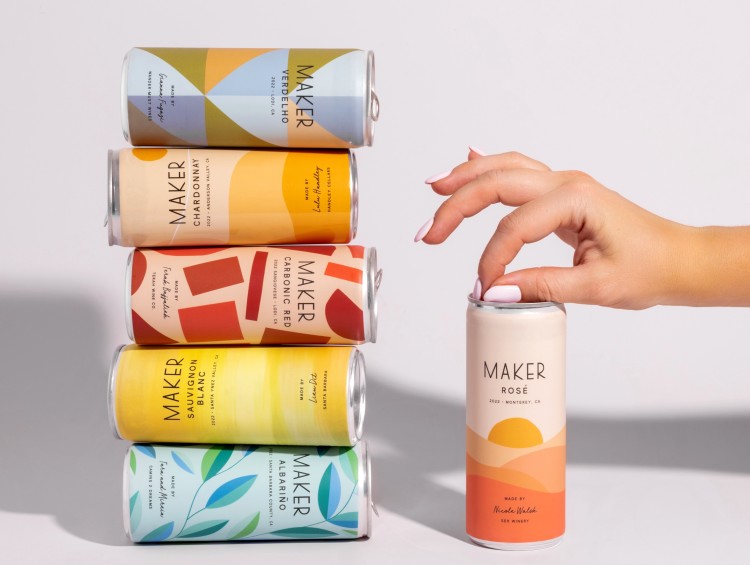
Picture this: you're kicking back with a bottle of wine (or a can of Maker's finest) when you spot the phrase 'contains sulfites' on the label. You pause, can in hand, and wonder… what the f*ck does that even mean? Sulfites have become a buzzword that's got everyone talking, and it's high time we get the lowdown.
What exactly are sulfites? Why are there sulfites in wine and are they harmful? Turns out, the answers are less daunting than they seem.
So crack a can of your favorite Maker vintage, sit back, and let's unravel the complexities of sulfites in wine.
Shop Maker's best sellers
Best Sellers Mixed Pack
Red, White, Rosé and Sparkling Wines
New to Maker? Try a curated selection of our best-selling dry wines! Includes the perfect assortment of red, white, rosé, and sparkling wines.
What are sulfites, and why are there sulfites in wine?
Sulfites might not be the first thing that comes to mind when you think of wine, but these tiny compounds play a big role in the winemaking process and the longevity of the final product.
Let's take it back to ancient Greece: those wise winos found that adding gypsum, a sulfur-packed mineral, into their wine before fermentation seriously upped its staying power. In a nutshell, sulfites are added to wine because they're A-grade preservatives with a bonus — they're pretty nifty sterilizers too.
Some sulfites are added during the winemaking process, but they also occur naturally as a byproduct of the fermentation process. But nature's contribution usually isn't enough to keep the wine in peak condition throughout its life, leading many winemakers to sprinkle in some more.
Those added sulfites guard against two major threats: bacterial spoilage and oxidation. Bacterial spoilage is like a drunk wedding crasher — it can turn a vibrant, lively flavor profile into a dull, off-tasting mess. And oxidation can dramatically alter a wine’s color and taste, like if you leave an apple on the counter for too long. In other words, sulfites keep your wine tasting fresh, not funky.
Even wines with no deliberately added sulfites, like many organic and biodynamic wines, will still contain some sulfites. They're naturally part of the deal, which is why you see 'contains sulfites' splashed on pretty much every wine label out there. And, the amount of sulfites used can differ between white and red wines. Red wines often require less added sulfites because of their prolonged contact with antioxidant-rich grape skins during fermentation. White wines, on the other hand, are more susceptible to spoilage due to their shorter skin contact time and may need a little more sulfite protection. In sweeter wines, sulfites also serve to halt fermentation at a desired point, helping to balance the sweetness with the acidity.
Shop Maker's natural wines
Natural Wine Mixed Pack
Natural Red, Orange, and White Wines
Three #nofilter kind of wines from LGBTQ+ female winemakers – try Albariño, Orange Wine, and Chillable Red.
Are sulfites in wine bad for you?
The sulfite debate is a hot-button topic, but it's important to separate fact from fiction. For most of the population — around 99% — sulfites in wine pose no health issues. They've often been blamed for wine hangover headaches, but there's no legitimate scientific evidence linking sulfites to these symptoms.
That said, around 1% of the population has a sensitivity to sulfites. These folks might experience *unpleasant* reactions when consuming sulfite-containing foods and drinks (flushing, wheezing, hives, dizziness, dicky tummy, or difficulty swallowing). But a lot of everyday foods like dried fruits, pickles, jams and jellies, cheeses, and even some seafood contain higher levels of sulfites than wine. So if you’re able to eat those, you likely aren’t sensitive to sulfites.
Sulfite levels in wine, while typically harmless for most, can depend on factors like grape type, the winemaking process, and desired shelf life. But don't equate 'more sulfites' with 'more freshness' — it's all about balance. Too many sulfites might keep your wine fresher for longer, but it could also dull the nuances or trigger sulfite sensitivities.

It's not a game of more is better, but rather, it's about finding the perfect harmony for the highest quality sip.
Soooo, why is “contains sulfites” even on the bottle?
It's not a trend, but rather an FDA mandate from way back in the '80s. If a wine has more than 10 parts per million (ppm) of sulfites, it's gotta show it off. It's not a big red flag for most people, but rather a friendly warning for those few who might react to sulfites.
Do sulfites in wine cause headaches?
As we mentioned, sulfites in wine have often been singled out as the cause of wine-induced headaches. However, this connection lacks solid scientific support. Unless you're in the sulfite-sensitive squad, it's unlikely that sulfites are causing your hangover headache. Other factors like high alcohol content, sugar, histamines, tannins, or ~not mixing in water~ are more likely the culprits.

So, are there sulfites in Maker Wine?
Yes, there are sulfites in Maker Wine. But let's clarify — the levels are deliberately kept low. We place paramount importance on wine quality and partner with winemakers who believe in minimal intervention. The balance is crucial, particularly for canned wines, because the development of hydrogen sulfide is the most common fault found in canned wines.
Hydrogen sulfide is produced when elemental sulfur is reduced to form sulfides. If we’re getting Breaking Bad with it, it’s from the reaction of sulfur dioxide with the aluminum can, which produces an oh-so-charming rotten egg aroma and compromises the wine. This is the last thing anyone wants, so we keep a tight lid on the Free SO2 (aka sulfur dioxide) levels to fewer than 12 ppm and Total SO2 levels to fewer than 60 mg/L.
Now, let's get real here. We're all about preserving the authenticity of your wine, without the science jargon and needless additives. This isn't just about preventing funky smells (though that's a major plus), it's about guaranteeing that every can of Maker Wine offers the same taste, freshness, and quality from the first to the last sip.
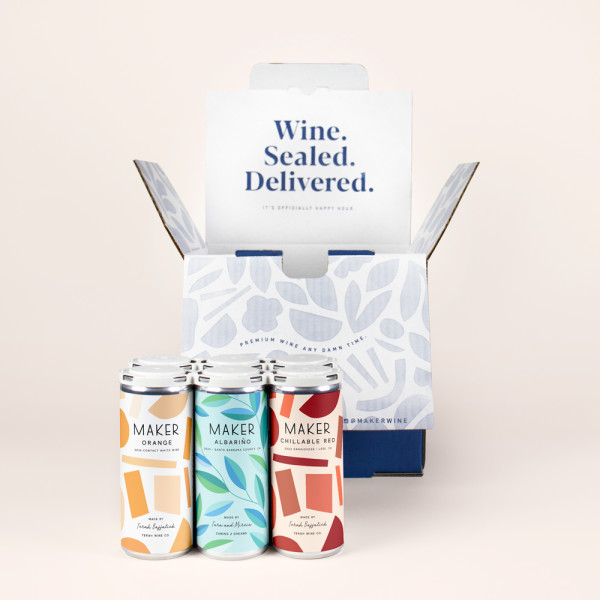
Try our natural wines
Try members-only Albariño, Orange Vermentino, and Carbonic Sangiovese – three very natty, #nofilter kind of wines from independent female winemakers.
Conclusion
So there you have it — the truth about sulfites, stripped down and served straight up. While those with sulfite sensitivities should tread lightly, for most of us, they’re a non-issue.
At Maker, we're all about balance, and that means maintaining the right levels of sulfites to ensure quality without compromising taste. So next time you see 'contains sulfites' on your can, raise it high knowing it's full of the good stuff.


